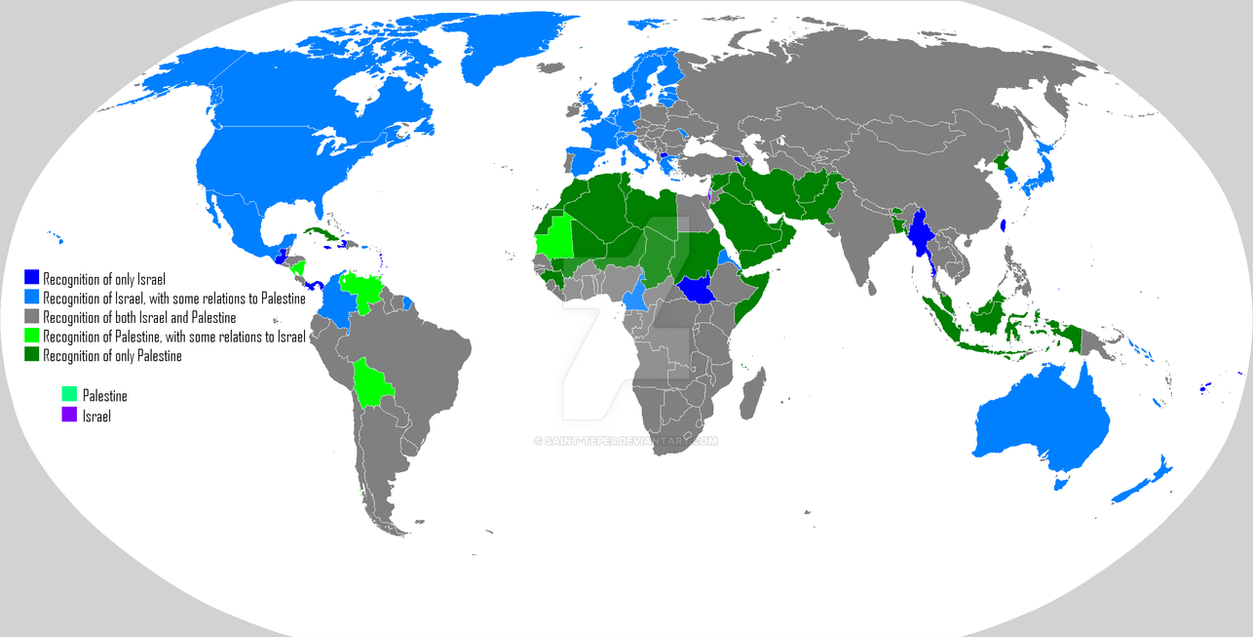Palestine Recognition: Key To Indonesia-Israel Relations

Table of Contents
Indonesia's Stance on Palestine
Historical Support for Palestine
Indonesia has a long-standing commitment to the Palestinian cause, deeply rooted in its principles of anti-colonialism and self-determination. This commitment is evident in its active role within the Non-Aligned Movement, consistently advocating for Palestinian statehood and a just resolution to the Israeli-Palestinian conflict in various international forums, like the United Nations.
- Financial Aid: Indonesia has provided consistent financial aid to the Palestinian Authority, supporting essential services and infrastructure projects.
- Diplomatic Efforts: Indonesian diplomats have persistently championed the Palestinian cause, participating in peace negotiations and advocating for a two-state solution based on pre-1967 borders.
- Humanitarian Assistance: Indonesia has offered humanitarian assistance to Palestinians in times of crisis, providing medical supplies, food aid, and other forms of support. This demonstrates a continued commitment to alleviating the suffering of the Palestinian people. These actions showcase Indonesia's unwavering commitment to Palestinian self-determination and its consistent foreign policy on the issue.
Obstacles to Normalization
Despite its historical support, Indonesia faces significant domestic political pressures and public opinion challenges when considering normalization with Israel. Religious and political groups hold strong reservations about formalizing relations, citing concerns about Israel's policies towards Palestinians.
- Concerns about Israeli occupation: The ongoing Israeli occupation of Palestinian territories is a primary concern for many Indonesians, impacting public perception of Israel.
- Human rights violations: Allegations of human rights violations against Palestinians contribute to negative sentiment towards Israel within Indonesian society.
- Settlement expansion: The continued expansion of Israeli settlements in the West Bank is a major point of contention and a significant obstacle to normalization. These issues shape the political landscape and influence the public discourse surrounding Indonesia-Israel relations.
Potential Benefits of Recognizing Israel
Economic Opportunities
Recognizing Israel could unlock significant economic benefits for Indonesia. Enhanced trade, investment, and technological cooperation with Israel, a nation renowned for its innovation in agriculture and technology, holds immense potential.
- Agricultural Technology: Collaboration in agricultural technology could boost Indonesia's food security and improve farming practices. Israel’s expertise in water management and drought-resistant crops is particularly relevant.
- Technological advancements: Indonesia could benefit from Israeli expertise in various technological sectors, including cybersecurity, medical technology, and renewable energy.
- Trade Agreements: Formalized trade agreements could lead to increased exports and imports, bolstering Indonesia's economic growth. Tourism is another area where mutually beneficial collaborations could be explored.
Regional Stability and Influence
Improved relations with Israel could elevate Indonesia's regional influence and contribute to Middle East peace efforts. Indonesia’s status as a large and respected Muslim-majority nation could play a crucial role in fostering dialogue and reconciliation.
- Mediation Role: Indonesia could leverage its improved relationship with Israel to mediate regional conflicts and promote a peaceful resolution to the Israeli-Palestinian conflict.
- Diplomatic Breakthroughs: Stronger ties could facilitate Indonesia's participation in regional peace initiatives, offering unique diplomatic leverage. This would enhance Indonesia's reputation as a constructive player in international affairs.
- Enhanced regional stability: Contributing to peace and stability in the Middle East would directly benefit Indonesia’s broader geopolitical interests.
Addressing Concerns Regarding Palestine
Conditions for Recognition
Indonesia might establish certain conditions for recognizing Israel, prioritizing a commitment to a two-state solution and progress on the Palestinian issue.
- Two-State Solution: Indonesia could insist on concrete steps towards a two-state solution based on pre-1967 borders, with East Jerusalem as the capital of a Palestinian state.
- Cessation of Settlement Expansion: An end to Israeli settlement expansion in the occupied Palestinian territories would be a crucial condition.
- Respect for International Law: Adherence to international law and human rights norms in the treatment of Palestinians would be non-negotiable. These conditions would safeguard Palestinian rights while opening the door for normalized relations.
Maintaining Commitment to Palestine
Balancing strategic interests with unwavering support for the Palestinian people's rights and aspirations is essential.
- Continued Humanitarian Aid: Indonesia can maintain its commitment to providing humanitarian aid and supporting Palestinian development.
- Advocacy for Palestinian Rights: Indonesia can continue its advocacy for Palestinian self-determination and a just and lasting peace in international forums.
- Dialogue and Engagement: Open communication channels with Palestinian representatives are crucial to ensure their concerns are consistently addressed. This balanced approach will allow Indonesia to pursue its national interests while upholding its commitment to justice and human rights.
Conclusion
The question of Palestine recognition is pivotal to the future of Indonesia-Israel relations. While challenges remain, the potential economic and diplomatic benefits for Indonesia are substantial. By establishing clear conditions for recognition and consistently upholding its commitment to a just resolution for Palestine, Indonesia can foster improved ties with Israel while simultaneously championing Palestinian rights. A nuanced approach that balances strategic interests and moral principles is vital. Continued dialogue and analysis of Palestine recognition are crucial for achieving a positive outcome in Indonesia-Israel relations and contributing toward lasting Middle East peace. Further discussion and strategic planning regarding Palestine recognition are vital steps towards building a brighter future for both nations and contributing to sustainable Middle East peace, strengthening Indonesia-Israel relations in a way that benefits all parties involved.

Featured Posts
-
 Pokemon Tcg Pocket Your Guide To Shiny Pokemon Hunting
May 29, 2025
Pokemon Tcg Pocket Your Guide To Shiny Pokemon Hunting
May 29, 2025 -
 Drenthe Paasvuren Geschrapt Door Droogte
May 29, 2025
Drenthe Paasvuren Geschrapt Door Droogte
May 29, 2025 -
 La Liga Hyper Motion Real Zaragoza Vs Eibar En Vivo Y En Directo
May 29, 2025
La Liga Hyper Motion Real Zaragoza Vs Eibar En Vivo Y En Directo
May 29, 2025 -
 Valverde La Influencia De Toni Kroos En Su Carrera
May 29, 2025
Valverde La Influencia De Toni Kroos En Su Carrera
May 29, 2025 -
 Trumps Pardon Reality Tv Couple Freed From Bank Fraud And Tax Convictions
May 29, 2025
Trumps Pardon Reality Tv Couple Freed From Bank Fraud And Tax Convictions
May 29, 2025
